-
- Auto und Motorräder
- Baby und Kleinkind
- Beleuchtung
- Bücher
- Büro, Kabel und Adapter
-
Campen, Wildnis Ausrüstungen
- Campingmöbel
- Campingzubehör
- Grillen
- Metalldetektoren
- Wohnwagen Zubehör
- Zelte
- Zeltzubehör
- Alle ansehen
Campen, Wildnis Ausrüstungen
-
Computer und Zubehör
- Computer
- Drucker und Scanner
- E-Reader
- Komponenten
- Laptops
- Monitore
- Netzwerk
- Speicherung
- Tintenpatronen und Toner
- Zubehör
- Gehören
- Server
- Tablet
- Alle ansehen
- 3D Druckersoftware
- Antivirensoftware
- Audio, Musiksoftware
- Backup Software
- Betriebssystem Software
- Dokumentenmanagement
- Foto- und Videobearbeitung
- Internet Security
- Lernsoftware
- Netzwerksoftware
- Software Suites
- Alle ansehen
Computer und Zubehör
Software
-
Computerspiel, Spielzeug und Partyartikel
- Spiele, Spiele Computer
- Gaming Stühle
- Merchandise
- Alle ansehen
- Baby und Kleinkind
- Bau und Konstruktion
- Bekannte Marken
- Bekannte Personen
- Drohnen und Multicopter
- Fanshop
- LEGO
- Miniaturen
- Modellbau
- Playmobil
- Spiele und Puzzles
- Spielzeug
- Spielzeug für draußen
- Schwimmbäder
- Alle ansehen
- Kostüm zubehör
- Partyartikel
- Partykleidung, Karnevalskleidung
- Alle ansehen
Spielekonsole
Spielzeug
Partyartikel
-
Drogerie
- Abnehmen
- Baby und Kleinkind
- Erste Hilfe
- Essen und Trinken
- Gesundheit und Medikamente
- Haushalt
- Schädlingsbekämpfung
- Make-up
- Pflege
- Reinigung
- Schwanger und baby
- Selbsttest
- Sport
- Parfüm und Kosmetik
- Persönliche Pflege
- Vitamine und Nahrungsergänzungsmittel
- Alle ansehen
- Make-up
- Parfums
- Alle ansehen
Drogerie
Parfüm und Kosmetik
-
Elektronik
- Car Audio/Video
- Domotik
- Drohnen und Multicopter
- Foto und Video
- Funkgeräte
- Telefonie
- Walkie-Talkies und CB-Ausrüstung
- Alle ansehen
- Aktive komponenten
- Automatisierung
- Bausätze, Module
- Elektromechanische Komponenten
- Entwicklungskits
- Gehäuse
- Optoelektronik
- Passive Bauelemente
- Pneumatik, Hydraulik
- Schalter, Taster
- Sensoren
- Steckverbinder
- Alle ansehen
Elektronik
Komponenten
- Erotik
- Essen und Trinken
- Fahrrad und Motorroller
- Foto und Video
-
Gadgets und Geschenkideen
- Blumen
- Gadgets und Geschenkideen
- Erfahrungen
Gadgets und Geschenkideen
- Garten
- Haushalt
- Hilfsmittel
-
Hobby, Basteln und Modellbau
- Backen
- Drachensteigen
- Drohnen und Multikopter
- Färben, Malen
- Musikinstrumente
- Angeln
- Alle ansehen
- Basteln kinder
- Basteln werkzeuge
- Klebepistole
- Stickgarnitur
- Alle ansehen
- Drohnen und Multikopter
- Modellbau elektronik
- Modellbau motoren
- Modellbau zubehör
- Modelleisenbahn
- RC Boote
- RC Cars
- RC LKW
- RC Flugzeuge
- RC Hubschrauber
- RC spezialfahrzeuge
- Modellbausätze
- Alle ansehen
Hobby
Basteln
Modellbau
- Kabel und Adapter
-
Kleidung, Schuhe, Taschen und Koffer
- Babykleidung
- Damenbekleidung
- Herrenbekleidung
- Jungenbekleidung
- Mädchenbekleidung
- Damen Retro Kleidung
- Herren Retro Kleidung
- Damen Accessoires
- Herren accessoires
- Alle ansehen
- Babyschuhe
- Damenschuhe
- Herrenschuhe
- Kindeschuher
- Eislaufschuhe
- Sportschuhe
- Arbeitsschuhe
- Alle ansehen
- Camping, Außentaschen
- Damentaschen
- Herrentaschen
- Kindertaschen
- Koffer
- Reisetaschen
- Rucksäcke
- Alle ansehen
Kleidung
Schuhe
Taschen und Koffer
-
Kochen, Küche und Tischservice
- Backen
- Besteck
- Fun Cooking
- Gläser & Glaswaren
- Grillen
- Küchengeräte
- Küchenzubehör
- Messer
- Pfannen
- Tischservice
- Alle ansehen
- Küchengeräte
- Backofen
- Dunstabzugshauben
- Gefrierschränke
- Herde
- Kochplatten
- Küchenzubehör
- Pfannen
- Kühl- Gefrierkombinationen
- Kühlschränke
- Mikrowellen
- Geschirrspüler
- Warmwasserbereiter
- Alle ansehen
- Küche
- Alle ansehen
Kochen und Tischservice
Küchengeräte
Gastronomie
- Möbel und Beleuchtung
- Modellbau
-
Musik (Instrumente) und Film
- Filme
- Musik
- Blasinstrumente
- Musikinstrumente Kinder
- Saiteninstrumente
- Schlaginstrumente
- Tasteninstrumente
- Zubehör
- Alle ansehen
Musik und Film
Musikinstrumente
-
Parfüm und Kosmetik
- Make-up
- Parfums
- Alle ansehen
Parfüm und Kosmetik
-
Persönliche Pflege
- Föhn, Haartrockner
- Gesichtssauna
- Gesundheitsprodukte
- Haarentfernungsgeräte
- Haarschneider
- Haarstyler, elektrischer Lockenwickler
- Hilfsmittel
- Mundpflege
- Rasierer
- Trimmer
- Saunen
- Alle ansehen
- Make-up
- Parfums
- Alle ansehen
Persönliche Pflege
Parfüm und Kosmetik
-
Reisen und Urlaub
- Unterkünfte, Reisen
- Alle ansehen
Reisen und Urlaub
- Sanitär
-
Schuhe, Kleidung, Taschen und Koffer
- Babyschuhe
- Damenschuhe
- Herrenschuhe
- Kindeschuher
- Eislaufschuhe
- Sportschuhe
- Arbeitsschuhe
- Alle ansehen
- Babykleidung
- Damenbekleidung
- Herrenbekleidung
- Jungenbekleidung
- Mädchenbekleidung
- Damen Retro Kleidung
- Herren Retro Kleidung
- Damen Accessoires
- Herren accessoires
- Alle ansehen
- Camping, Außentaschen
- Damentaschen
- Herrentaschen
- Kindertaschen
- Koffer
- Reisetaschen
- Rucksäcke
- Alle ansehen
Schuhe
Kleidung
Taschen und Koffer
- Schwimmbäder
-
Spielzeug, Spielekonsole und Partyartikel
- Spiele, Spiele Computer
- Gaming Stühle
- Merchandise
- Alle ansehen
- Baby und Kleinkind
- Bau und Konstruktion
- Bekannte Marken
- Bekannte Personen
- Drohnen und Multicopter
- Fanshop
- LEGO
- Miniaturen
- Modellbau
- Playmobil
- Spiele und Puzzles
- Spielzeug
- Spielzeug für draußen
- Schwimmbäder
- Alle ansehen
- Kostüm zubehör
- Partyartikel
- Partykleidung, Karnevalskleidung
- Alle ansehen
Spiele
Spielzeug
Partyartikel
- Sport
- Telefone und Zubehör
- Tierbedarf
-
Ton und Bild
- Foto und Video
- Alarmanlagen
- Audio und Hifi
- Audiovisuell
- DJ Gear, Bühne, Studio
- Fernsehen
- Projektoren und Beamer
- Satellitenschüssel, Antenne
- Videoüberwachung
- VR Brillen
- Alle ansehen
- Foto und Video
- Entfernungsmesser
- Ferngläser
- Lupen, Lesebrillen
- Mikroskope
- Teleskope
- Alle ansehen
Ton und Bild
Foto und Video
- Uhren und Schmuck
-
Wein und Starke getränke
- alkoholfreier Weine
- Bio Wein
- Champagner
- Dessertwein
- Portwein
- Roséwein
- Rotwein
- Schaumweine
- Sherry
- Starke getränke
- Weinpaket
- Weißwein
- Zubehör
- Alle ansehen
Wein und Starke getränke
- Werkzeuge, Baumaterial
-
Wohnen, Wohnaccessoires
- Heimtextilien
- Kamine und öfen
- Teppiche und Matten
- Vorhänge, Jalousien
- Wohnaccessoires
- Alle ansehen
- Weihnachtsbäume
- Weihnachtsbeleuchtung
- Weihnachtsdekoration
- Weihnachtsdorf häuser, Figuration
- Weihnachtskugeln
- Alle ansehen
- Betten
- Schränke
- Schreibtische
- Sofas und Couches
- Stühle
- Tische
- Alle ansehen
- Außenleuchten
- Deckenleuchten
- Hängelampen
- Kinderlampen
- Lampenschirme
- Lampensockel
- Lichter, Zubehör
- Nachtlichter
- Spots
- Stehlampen
- Tischlampen
- Wandleuchten
- Alle ansehen
Wohnen, Wohnaccessoires
Weihnachten
Möbel
Beleuchtung
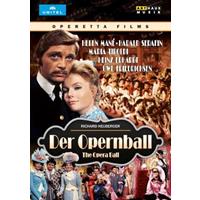



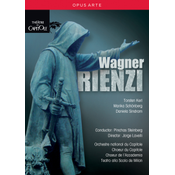
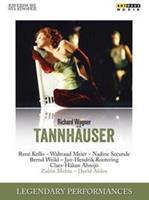
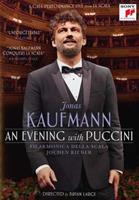
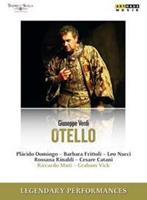
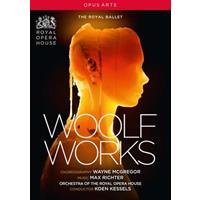
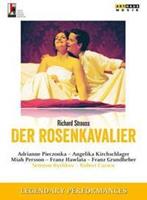
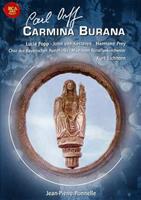
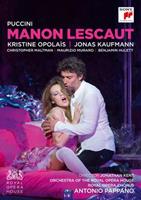
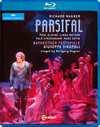
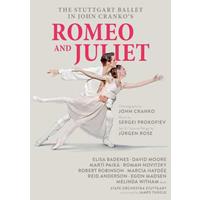
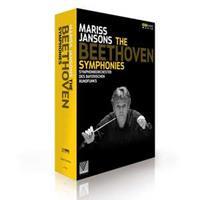
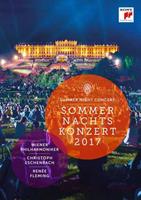
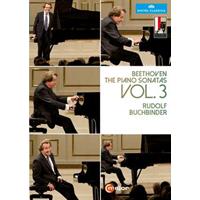
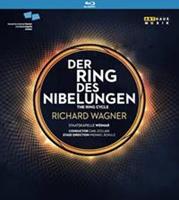
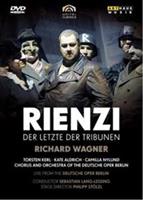
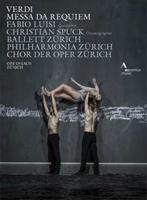
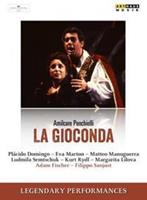
![Shakespeare - King and Country Box [4 DVDs]](http://www.schier-cdn.com/img_products/NL_Gaming_Games/20160811058412001470924411.jpg)